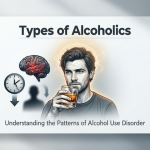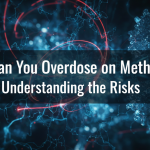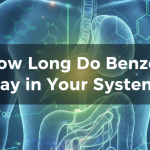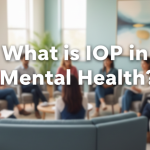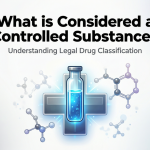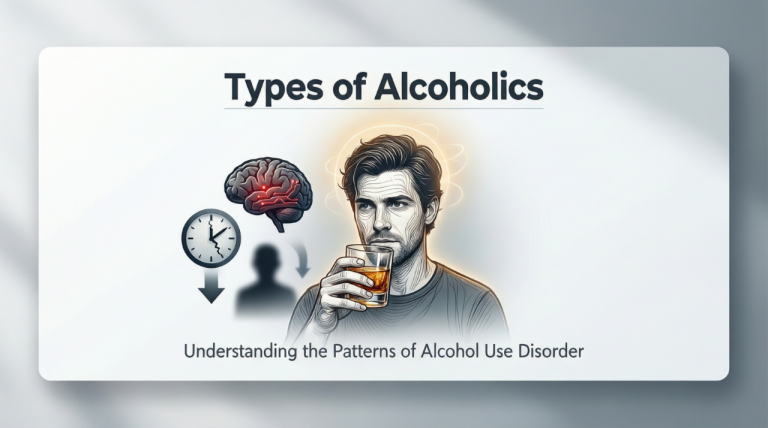Co-occurring disorder or dual diagnosis is a condition that poses a challenge and major impact on one’s life. Dual diagnosis means that there exists both the mental health disorder as well as the substance abuse disorder. These disorders can affect each other, making symptoms worsen and resulting in severe health complications, its diagnosis and treatment are complicated. According to the Substance Abuse and Mental Health Services Administration (SAMHSA), approximately 9.2 million adults in the United States had co-occurring disorders in 2018. This guide offers an encompassing view of co-occurring disorders together with tips on how the condition can be overcome in the course of the affected individual’s life.
Understanding Co-Occurring Disorders
Dual diagnosis is the term used when a person has a mental illness and a substance abuse disorder at the same time. These disorders vary from mild to severe and are generally mutual in that they trigger other cognate disorders. Some of the usual ones are when depression or anxiety is associated with substance use such as alcohol or drugs.
This was an eye-opener looking at the statistics that indicate that co-occurring disorders are more prevalent than most people might imagine. For example, the National Institute on Drug Abuse (NIDA) has estimated that patient with mood or anxiety disorder has a 2 times higher chance of developing substance use disorder. These disorders are not limited to the sufferers, they affect families, employers, businesses, cities, and towns, thus incurring a high social and economic cost.
Common Combinations
- Substance Use Disorder and Depression: Substance use disorder can be both a cause and a consequence of depressive episodes since alcohol and drugs can worsen the condition.
- Substance Use Disorder and Anxiety Disorder: Anxiety is another major condition that people take substances to cope with; however, substance use only leads to exacerbation of the anxiety signs.
- PTSD and Substance Abuse: This in most cases leads to drug dependency since patients with PTSD use substances as a way of dealing with the situation.
Co-occurring Disorders Signs and Symptoms
It is relatively easy to miss the signs of co-occurring disorders because the symptoms of such conditions are similar. Common indicators include:

- Behavioral Changes: Outbursts of aggression, isolation, and/or ignoring usual activities.
- Mood Swings: Fluctuations in their mood that are peculiar to that individual and not expected at that time.
- Physical Symptoms: Symptoms that have no apparent cause, including, for example, pain, frequent headaches, or digestive problems.
- Substance Use: They include the enhancement of the amount of alcohol or drugs that one takes especially if it is to help in controlling the mood.
Assessment and Diagnosis
Comprehensive evaluations typically include:
- Clinical Interviews: These are clinical interviews that are usually administered by mental health workers to obtain a comprehensive assessment of the patient’s background and signs.
- Standardized Screening Tools: For instance, the criteria for diagnosing mental health disorders contained in the DSM-5 and different screening tools used in substance use.
- Physical Examinations: To exclude any medical causes of the associated observable symptoms and pattern.
Treatment Options
Integrated Treatment Programs
Integrated treatment programs are the best way of approaching patients with such dual disorders. These are programs that manage mental and substance use disorders at once because of the interaction between the two. Combined therapy implies the use of therapy, pharmacotherapy, and other services that are relevant and necessary for the client.
Therapeutic Interventions
Therapeutic interventions have proven effective for co-occurring disorders:
- Cognitive Behavioral Therapy (CBT): CBT is set on looking for the actual process of how a given negative way of thinking and acting can be altered.
- Dialectical Behavior Therapy (DBT): Teaches clients how to deal with stress, and how to control anger amongst other moods.
- Motivational Interviewing (MI): Challenges people to work through uncertainty and their ambivalence about treatment and change.
Medication Management
Substance use can be a part of the treatment plan together with medications for co-existing mental disorders. Depending on the specific conditions, common medications may include:
- Antidepressants: In case of depressive and anxious symptoms.
- Mood Stabilizers: Namely, for bipolar disorder.
- Antipsychotics: Especially in cases of severe mental health diseases such as schizophrenia.
- Medication-Assisted Treatment (MAT): For substance use disorders like methadone and buprenorphine that are used with opioid use disorder.
Ways to Manage Co-Occurring Disorders in Daily Life
Following are the techniques that can be employed to cope with co-existing disorders in everyday life:
Lifestyle Modifications
Incorporating healthy lifestyle changes can significantly improve the management of co-occurring disorders:
- Balanced Diet: Thus, maintaining a healthy diet has a positive impact on stabilizing mood and energy health among people.
- Regular Exercise: The previously mentioned physical exercise is likewise useful for the management of mental health and substance use disorders.
- Adequate Sleep: Habits such as adequate sleep play an important role in the well-being of people; hence they should observe a timetable exercise.
Mindfulness and Stress Reduction
Practicing mindfulness and stress reduction techniques can help manage symptoms and prevent relapse:
- Mindfulness Meditation: Enhances people’s ability to be more perceptive of the present time to lower stress and anxiety levels.
- Yoga: Incorporates the aspect of practicing physical activity with features of mental training to improve one’s health.
- Deep Breathing Exercises: Mainly used in the management of anxiety and any form of stress since they can reduce increased physiological responses to stress.
Applying these habits to individuals’ daily routines can promote better emotional regulation and psychological hardness.
Building a Support System
- Family and Friends: Providing emotional support and encouragement.
- Support Groups: Participating in support groups offers peer support and shared experiences.
- Professional Support: Scheduling follow-up appointments with the therapists or counselor to assess the level of compliance and to also address any issues arising from the process.
Creating a Structured Routine
Establishing a structured daily routine can provide stability and reduce the risk of relapse
- Daily Schedule: Make a daily plan that includes the routine to restore that feeling of normalcy and meaning.
- Organized Environment: The study also reveals that cleanliness and orderliness may decrease stress and increase the chances of getting great focus.
Relapse Prevention Strategies
Developing a relapse prevention plan is crucial for maintaining recovery:
- Identifying Triggers: Identifying the triggers which may trigger substance use, or relapse to other mental health issues.
- Coping Strategies: Healthy coping mechanisms of the triggers for instance one may find other ways of handling them through practicing other activities or discussing them with someone close.
- Action Plan: Develop the plan for further actions if a relapse has occurred, as well as have a contacts and resources list.
Co-occurring disorders treatment is not always easy, but if the proper approach and motivation are provided, the individual can live a normal, healthy, and happy life. You need to understand that recovery is more a process than a state; it is the journey and not the destination. Fortunately, many people have undergone treatment and stabilized their co-occurring disorders, and with the right effort and direction, so can you.

For anyone out there, a friend or a family member, who may be in distress, don’t wait to get the help you need and deserve. Contact Orlando Treatment Solutions at (321) 415-3213 or email us at info@shc.health.







